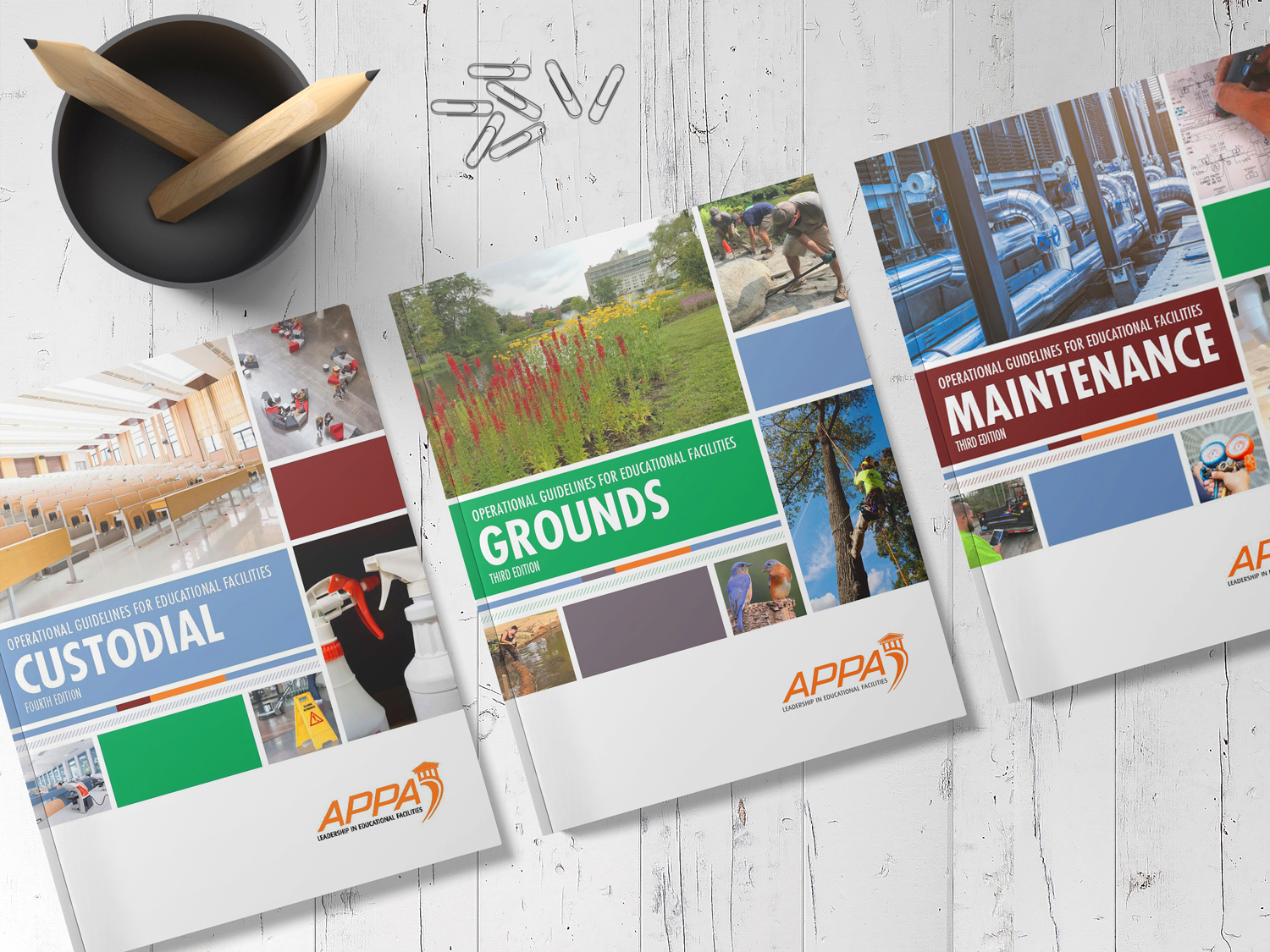Welcome to APPA
Empowering the educational facilities community to drive student success through innovative learning environments.
 Facilities Manager Magazine
Facilities Manager Magazine
General Editorial Focus
We aim to spotlight APPA member institutions and industry partners by showcasing their challenges, innovations, and leadership through authentic, emotionally resonant stories that inspire and inform—never sales pitches—while providing narrative context with human interest angles and real-world impact. Now published four times a year for deeper, more curated content.
Editorial Review Process
All submissions are reviewed by a formal Editorial Board to ensure educational value, relevance, and originality, and may be edited for clarity, tone, and alignment with APPA’s mission; promotional or off-topic content may be declined.
 Operational Guidelines Trilogy
Operational Guidelines Trilogy
Used by thousands of institutions across North America, APPA’s Operational Guidelines Trilogy is the definitive toolkit for transforming your facilities operation. Whether you're managing a large university campus or a small educational facility, these guidelines deliver the strategies, tools, and benchmarks you need to optimize performance and justify your decisions.

